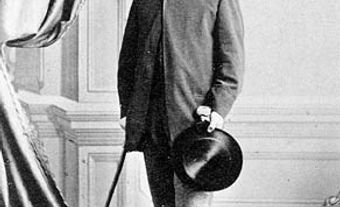Bessborough, Vere Brabazon Ponsonby, 9th Earl of
Vere Brabazon Ponsonby, 9th Earl of Bessborough, governor general of Canada 1931-35 (b at London, Eng 27 Oct 1880; d at Stansted, Eng 10 Mar 1956). He was the only prominent British businessman ever to be governor general, and as such something of a surprise appointment. Born into the Irish peerage and trained as a lawyer, he was a staff officer in WWI, and an MP in 1910 and again 1913-20, when he went to the House of Lords. In the 1920s he headed the Sao Paulo Railway and the Margarine Union and was deputy chairman of De Beers.
He and his French wife were enthusiastic amateur actors, having built a theatre at their Sussex home. In Canada they inaugurated the DOMINION DRAMA FESTIVAL. The handsome, rich, well-fed and impeccably dressed aristocrat must have been an incongruous sight at the height of the Great Depression, but he showed his sympathy with the plight of Canadians in small ways, and was granted his wish for a 10% cut in salary.

 Share on Facebook
Share on Facebook Share on X
Share on X Share by Email
Share by Email Share on Google Classroom
Share on Google Classroom

